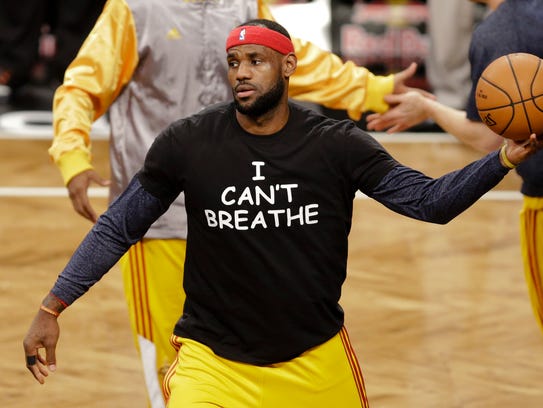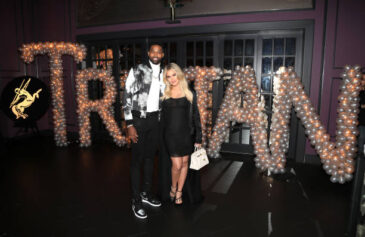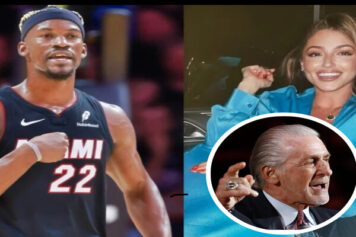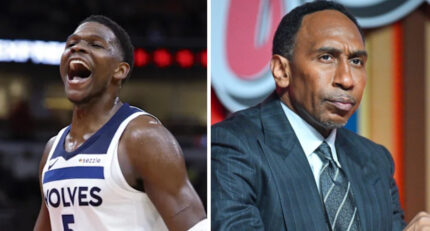I aint got no quarrel with the Viet Cong. No Viet Cong ever call me n____. Muhammad Ali
Upon the tragic breaking news of Muhammad Alis death on Friday, June 3, 2016, mass media outlets from all corners of the globe flooded the scene with tributes for a man who, despite being comprised of mere flesh and bones, achieved mythic stature beyond mere athleticism.
The former three-time heavyweight champion is perhaps single-handedly responsible for sending a huge chunk of the population scrambling for their thesaurus in an attempt to eloquently describe the ultimate wordsmith blessed with the gift of gab.
One of the most common terms used when referencing Ali is a champion for justice.
(Photo Credit: Getty Images)
Its been well-documented in print, digital, TV and film of Alis unapologetic stance against racism, poverty, miseducation, and war. His heartfelt opposition to the Vietnam War, personified by the iconic quote, I aint got no quarrel with the Viet Cong. No Viet Cong ever call me n____, resulted in him being vilified by the media, court-martialed by the U.S. Army and stripped of his championship belt.
Although he avoided being imprisoned, he was forced to pay thousands of dollars in fines and legal fees. As a result of his anti-war protest, he also lost out on several corporate endorsements.
During his boxing heyday, Ali was a spoke in a big wheel of black athletes who proudly voiced their opinions regarding racial inequities in America. Stars such as Kareem Abdul-Jabbar, Jim Brown, Tommie Smith, John Carlos, Bill Russell and a retired Jackie Robinson made headlines for using sports as a platform to raise awareness of the second-class treatment of African-Americans nationwide.
However, as the riots and protests of the 1960s and early 1970s faded away, so did the conscious voice of the black athlete.
Over the last 40 years, the trickle-down effect of integration, surface acceptance by mainstream America and money caused many black athletes to shy away from addressing controversial or political issues. The fear of ruffling feathers or losing out on the lavish lifestyle resulting from their lucrative contracts was reason enough to scurry over topics which have a deep impact on the African-American community.
(Photo Credit: Getty Images)
Perhaps one of the most infamous instances of playing it safe and the ultimate anti-Ali commentary occurred in 1990, when Michael Jordan said, Republicans buy sneakers too after denying Harvey Gantts request for an endorsement during his run for the U.S. Senate. Gantt, a black Democrat and former mayor of Charlotte, was squaring off against the incumbent, Jesse Helms.
Although the comment at its core is true, the words made African-Americans view Jordan with a crooked eye. Helms was a boastful former segregationist who, among many of his shady political views, opposed the signing of the bill to recognize Martin Luther Kings birthday as a federal holiday.
As is the case with all celebrity deaths, fans reflect fondly and feel inspired to change their lifestyle based on the views of their beloved hero. However, oftentimes, soon after the dust settles from the fragments of earth tossed on the gravesite, those sentimental feelings unfortunately give way to dealing with tangible aspects of the here and now.
This reality creates an interesting scenario and thought-provoking questions. With so many profound images and comments regarding Alis passionate stance for justice, will todays superstar black athletes be inspired to be more consistent when it comes to speaking out on political issues?

(Photo Credit: airjordanshoeshq.com)
In addition to the funds donated to their personal charitable organizations, will they use their celebrity profile as a platform to bring attention to problems which are often overlooked or dismissed by the national media?
Ali leaves behind a ginormous and unattainable pair of shoes to fill from his earthly absence, but there are some who have stood in front of a camera to speak upon significant problems. LeBron James is one of the few superstars who has publically commented on various ills within the African-American community.
While with the Miami Heat in 2012, he partook in a team photo donned with hooded sweatshirts in the massive social media tribute to the late Trayvon Martin. Several Heat players also wrote RIP Trayvon Martin and We want justice on their sneakers following the shooting death of the Florida teen.
In 2014, this time with the Cavs, he sported a black I Cant Breathe T-shirt during shootaround in protest of Eric Garners chokehold death at the hands of New York City police officers in Staten Island. Joining James in wearing the famed T-shirt were fellow hoopsters Kyrie Irving, Derrick Rose, Kevin Garnett, Deron Williams, Kobe Bryant and the entire Los Angeles Lakers roster.

(Photo Credit: USA Today)
Last summer, the LeBron James Family Foundation partnered with the University of Akron to give qualified graduates of the I Promise program a four-year scholarship to attend the hometown institution after high school. The financial commitment is over $40 million.
Although the aforementioned Ali-type acts are worth of praise, James drew outrage from critics for his delayed response following the police-involved murder of Tamir Rice, a 12-year-old Cleveland native.
In the aftermath of the grand jurys decision not to indict the officers this past December, James stated: For me, Ive always been a guy whos took pride in knowledge of every situation that Ive ever spoke on. And to be honest, I havent really been on top of this issue.
NBA ballers werent the only ones using an athletic event to join in with citizens in protest against unjust behavior by law enforcement officials.
During a home game against the Oakland Raiders on Nov. 30, 2014, the starting wide receiver core of the St. Louis Rams walked out of the tunnel in unison displaying the Hands Up, Dont Shoot protest in tribute to Michael Brown of nearby Ferguson, Missouri.

(Photo Credit: USA Today)
Later that season on Dec. 14, Cleveland Browns wide receiver Andrew Hawkins wore a T-shirt inscribed with the words Justice for Tamir Rice and John Crawford.
One of the most poignant acts of civil disobedience came courtesy of Knox College womens basketball player Ariyana Smith. On Nov. 28, 2014, during her teams away game against Fontbonne College in Clayton, a suburb of St. Louis, Smith walked away from her teammates with her arms raised in the Hands Up, Dont Shoot gesture and positioned herself on the floor in front of the American flag amidst the singing of the national anthem.
Smith later addressed the situation saying, I knew it was going to shock people. I knew they were going to be upset, but I couldnt let that stop me. I could not go to the city of St. Louis and not acknowledge the sacrifice the protesters were making with their bodies. People are being tear- gassed. To me, that demonstration was absolutely respectful.
The school initially suspended Smith for her actions only to later reverse their decision following a national outcry for her being penalized for exercising her First Amendment right.
Ali is gone in the physical form, but he left a blueprint of courage for his admirers to follow in terms of fighting for principles. The athletes who spoke out against police brutality and other issues are following the Ali mantra of enacting change.
Throughout his career and retirement, he inspired so many people by his words as well as his deeds. Now, the goal is to keep the momentum of the Ali-themed stimulation flowing for weeks, months and years after the world has moved on from the celebrations of his passing.
A man who views the world the same at 50 as he did at 20 has wasted 30 years of his life, Muhammad Ali (1942-2016)





